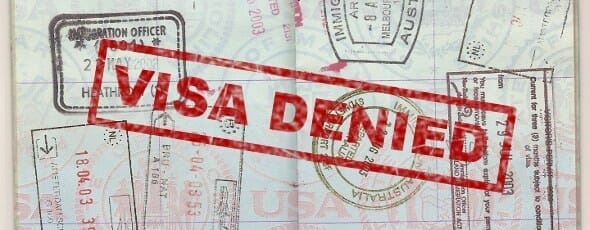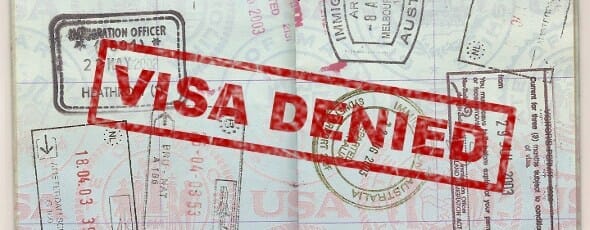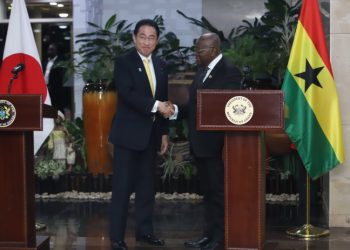
President Donald Trump’s latest proclamation, effective June 9, 2025, is being met with outrage and concern across the African continent. This new travel ban specifically targets 12 countries with full restrictions on entry and places partial limits on seven others. This decision, announced by the White House, immediately raises questions about its broader implications for US-Africa relations and specific concerns for countries like Ghana.
The White House Position: National Security First
The Trump administration frames this ban as a necessary measure for national security. White House deputy press secretary Abigail Jackson stated that President Trump is “fulfilling his promise to protect Americans from dangerous foreign actors that want to come to our country and cause us harm.”
She explained the restrictions are “country-specific and include places that lack proper vetting, exhibit high visa overstay rates, or fail to share identity and threat information.”
For instance, the proclamation highlights high overstay rates for some affected nations, citing Chad with 49.54% for business/tourist visas and 55.64% for student visas, and Equatorial Guinea with a 70.18% student visa overstay rate.
President Trump echoed this sentiment in a video. He stated the list is subject to revision based on whether material improvements are made. He added, “And likewise new countries can be added as threats emerge around the world, but we will not allow people to enter our country who wish to do us harm and nothing will stop us from keeping America safe.”This perspective highlights a focus on perceived vulnerabilities in global security frameworks.
African Nations React: Fear, Discrimination, and Division
The proclamation lists several African nations facing full or partial bans. Chad, Republic of the Congo, Equatorial Guinea, Eritrea, Libya, Somalia, and Sudan face full entry restrictions. Burundi, Sierra Leone, and Togo are under partial limits. Notably, 10 of the 19 countries on the expanded ban list are African nations.This inclusion of numerous African countries has drawn sharp criticism.
Oxfam, a prominent international aid organization, immediately condemned the move. In a statement, Oxfam America’s President and CEO, Abby Maxman warned that the proclamation “marks a chilling return to policies of fear, discrimination, and division.” Maxman highlighted the human cost. The ban, she stated, “will deny entry to the US for individuals and families fleeing war and persecution, “forcing them to remain in dangerous conditions.”
Many observers note that several included nations, like Sierra Leone and Togo, have no widely known extremist threats against Western nations. Critics argue the ban often targets predominantly Black and brown populations.
The African Union has previously reacted strongly to similar US travel bans. In 2017, then-AU Commission Chair Nkosazana Dlamini-Zuma publicly condemned a travel ban on several Muslim-majority countries. She stated “The very country to which many of our people were taken as slaves during the transatlantic slave trade has now decided to ban refugees from some of our countries. What do we do about this? Indeed, this is one of the greatest challenges to our unity and solidarity.”
They argue that free and legal movement strengthens relationships. Cooperation and meaningful engagement are essential for addressing global challenges like terrorism.The current lack of a unified African Union statement on this specific ban, as seen in past instances, also raises concerns about continental solidarity against such policies.
What This Means for Other African Countries
Beyond the directly affected nations, this travel ban sends a broader message. It signals a shift in US engagement with Africa. The Brookings Institution has said that while Africa offers important economic opportunities for the US, China often outpaces America in trade volumes with Africa by a factor of four and foreign direct investment by a factor of two. This ban might further complicate US efforts to strengthen its standing on the continent.
The ban can hurt the perception of the US as a welcoming nation. This perception matters greatly for trade, investment, and diplomatic ties. The Trump administration’s preference for transnationalism has been evident in its approach to aid, with an 83% cut in USAID programs and a planned withdrawal of $555 million in US contributions to the African Development Bank and African Development Fund.
Some analysts fear it could push African nations to strengthen partnerships with other global powers. These powers might offer less conditional engagement. For instance, a previous travel ban affecting Nigeria was seen by some as potentially benefiting China.Such bans can undermine development initiatives by limiting crucial exchanges. They might also perpetuate what some critics call racist stereotypes about Africa.
Why Ghanaians Care and Are Concerned
Ghanaians have a strong interest in US immigration policies. The United States has been a significant ally for Ghana. Bilateral trade between the two countries hit $2.1 billion in 2024.The US is also one of Ghana’s largest sources of foreign direct investment, with major American companies such as ExxonMobil, Chevron and Newmont Corporation having significant interests in key sectors, especially energy and telecommunications.
Ghana took in $4.6 billion in remittances in 2023. This made it the second-highest recipient in all of Sub-Saharan Africa, only behind Nigeria’s $19.5 billion. These funds, equivalent to $8B USD, or 6% of Ghana’s GDP in 2022, are crucial for the majority of Ghanaian families. They provide an essential buffer against economic shocks, crucial in mitigating challenges, including food insecurity and debt-servicing difficulties.
Many Ghanaians choose to emigrate to the US each year in search of greener pastures. According to Pew Research Center data that increase of nearly 200% between 2000 and 2019 has made Ghana one of the leading birthplaces of Black African immigrants arriving in the US.
In fact, the Black African immigrant population in the US tripled, increasing by 246%, from approximately 600,000 to 2.0 million between 2000 and 2019.Family sponsorship is the dominant method by which immigrants—from sub-Saharan Africa and elsewhere—enter the U.S. or adjust their status. Also, the Diversity Visa Program,— responsible for 12% of all admissions for Sub-Saharan Africa —has recently been subject to bans by the Trump administration, even though Ghanaians could still have this option in the future.
Ghana may not be on today’s ban list, but as seen in this administration’s travel ban 1.0, the precedent is concerning. These bans increase suspicion on the part of all African travelers, creating fear and uncertainty for Ghanaians considering trips or trying to reconnect with family.
It can positively influence the perception of Ghanaian professionals and students abroad and increase their competitiveness in foreign job markets.
Nigerian immigrants have shown consistent, large-scale contributions to the US, with 59% of Nigerian immigrants having at least a bachelor’s degree (relative to 31 percent of the total American population) and holding a more than half-billion-dollar benefit to the US education system in one year alone.
The human element – the relationships, on-the-ground innovation, and long-term investment in implementation partner continuity cannot be overstated.
Implications in the US-Africa Relationship
The travel ban, though only applicable to a select number of countries, will nonetheless have the effect of deepening the ongoing US-Africa relations narrative of exclusion. It reinforces a transactional relationship, based on perceived security at the expense of continuous diplomatic and economic engagement.
While the US cites clear security concerns, many African leaders and citizens interpret these policies as discriminatory. They believe these types of policies downplay the complexities of continent-wide security challenges and the importance of collaborative solutions.
The ultimate consequence in the long run may be loss of trust. It would risk a backlash in the form of a re-evaluation of partnerships by African countries. This, perhaps pushing them to re-establish firm ties with alternative great powers—China or Russia, for instance. If access to the US continues to be in question, African talent and resources may go seek opportunities elsewhere.
This could actually undermine US influence and its claimed goals for a prosperous and peaceful Africa. The policy’s success will depend on its actual impact on security, balanced against the large diplomatic and human costs it imposes on a growing interconnected global community.
DISCLAIMER: The Views, Comments, Opinions, Contributions and Statements made by Readers and Contributors on this platform do not necessarily represent the views or policy of Multimedia Group Limited.
DISCLAIMER: The Views, Comments, Opinions, Contributions and Statements made by Readers and Contributors on this platform do not necessarily represent the views or policy of Multimedia Group Limited.
- President Commissions 36.5 Million Dollars Hospital In The Tain District
- You Will Not Go Free For Killing An Hard Working MP – Akufo-Addo To MP’s Killer
- I Will Lead You To Victory – Ato Forson Assures NDC Supporters
Visit Our Social Media for More




